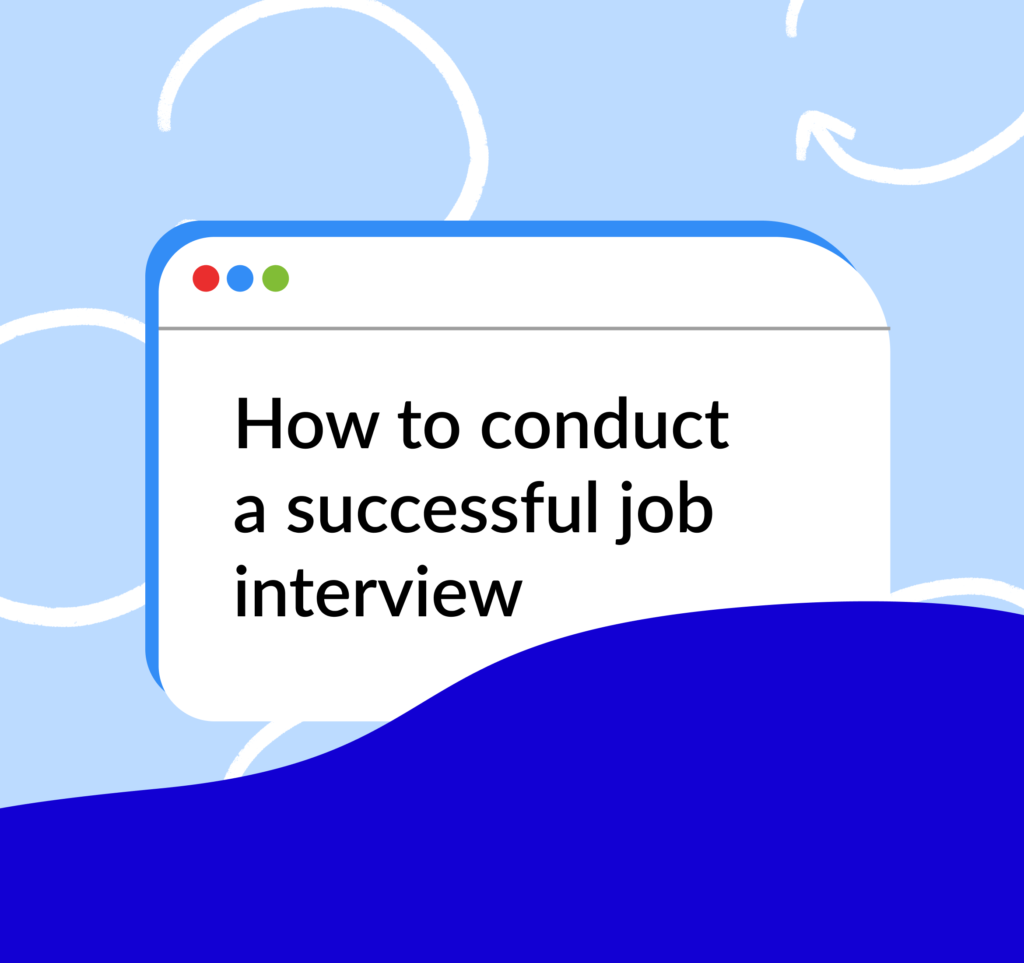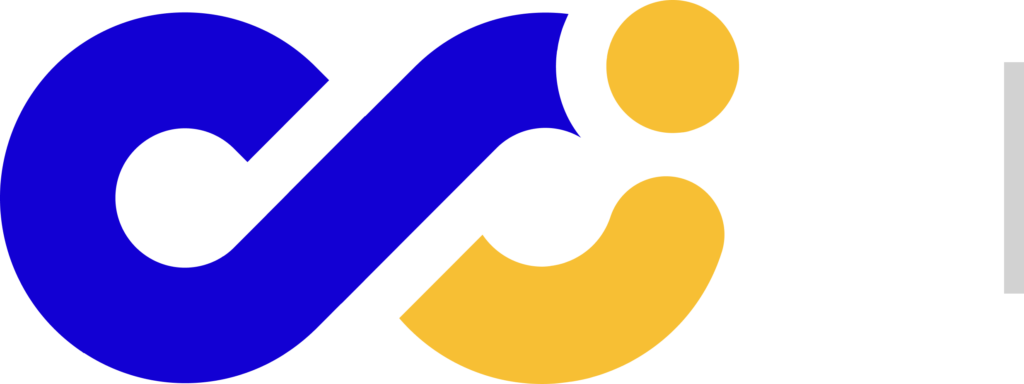How to conduct a successful job interview
Learn how to conduct a job interview that will help you efficiently qualify your candidates! Click here and check out!
Jaime Ramos
The interview is a conversation in which you and a candidate exchange information. The goal of the job interview is to better understand if the candidate is qualified for the position they’ve applied for.

A job interview should be a decisive moment to understand whether or not you would like to advance a candidate in your hiring process. When conducted correctly, it becomes a powerful screening tool.
Effective interviews will tell you what you need to know about a candidate. It’s important for you to invest some time in preparing questions that make sense for the specific position, but also, make the interviewee feel relaxed and welcomed.
If you want to learn more about how to conduct an efficient job interview, we have some tips to share that can help you prepare!
We’ll go over:
- The importance of a job interview
- 6 Types of job interviews that you can conduct
- How to make your job interview more efficient
What is the importance of a job interview?
During your hiring process, applicants can undergo a series of screening steps in order for you to better understand if they’re qualified to work in the role they’ve applied to. The job interview should be conducted during this screening process, in the beginning, middle or end.
It is up to you to decide on the best moment to interview your candidates. As a general rule of thumb, you don’t want to spend too much time interviewing unqualified candidates because that would slow down your time to hire. So it’s important to add a couple of screening steps to eliminate applicants who are not fit for the position, before you begin interviewing.
However, do not leave job interviews out of your hiring process entirely because they do serve an important purpose.
Job interviews allow you to understand the following candidate attributes better:
• Their past experiences, skills and professional interests
• Their personality traits, posture, communication skills
• Whether or not they’ll be a good fit for the role, team and organization overall
Benefits of conducting a positive job interview
To guarantee a smooth interview process, it’s important that your candidate walks away feeling like they were listened to. Depending on where you are in the hiring process, they should also be provided with the important information they need to make an informed decision about the role. The job interview should always be a positive experience for both parties.
Even if interviews don’t result in hiring, which they won’t for many candidates, a thoughtfully designed process that is personalized for the position, can bring several benefits to both you and applicants.
Some of these benefits are:
- Interaction with your candidate
- More precise information about the professional’s profile
- Humanization of the R&S process
- Strengthening of your Employer Branding
- Increased NPS
- Reduced Turnover Rate
The 5 different types of job interview models
There are several types of ways that you can conduct your job interviews. You should choose a job interview type based on the type of role you’re hiring for, where you are in the hiring process and what information you’d like to get from the interview. You may also mix these models into one interview as well. Below, we have selected six types of job interview modes that you can use in your hiring processes:
Technical Interviews
The main goal of a Technical interview is to better understand if the candidate has the specific hard skills required for the role. In this type of interview you and your team can assess technical knowledge, problem solving skills and critical thinking abilities as needed for the position. In this model, the interview can play out like an exam, where candidates are expected to solve problems along with answering questions. Or the candidate might have done a technical assessment before the interview and you might use the interview to discuss their answers. This type of interview is best for the roles that demand certain hard skills as a prerequisite.
Behavioral Interview
Behavioral interviews are essential to understand the candidate’s personality, posture and communication skills, regardless of the type of job they’re applying to. In a behavioral interview you may present day-to-day work situations and analyze how the candidate responds to them. It’s also a good opportunity to learn more about the candidate’s past experiences and ask them about their professional goals.
Problem-solving Interview
The problem-solving interview consists in working through a business scenario (real or fictitious) that may be related to the position. The idea is to allow the candidate to present a solution on how to solve an issue, make quick and accurate calculations and explore creative options on how to best reach an outcome.
Group Interview
The group interview model consists in assessing more than one candidate at a time. This type of interview can reduce time, but most importantly, it can be used as a strategy to see your candidate’s teamwork in action. This format can provide unique insights on how your applicants behave with other work colleagues.
Activity based Interview
Similar to the problem solving model, the idea behind the activity based interview is to propose a series of activities based on real situations. In this type of interview, you can use tools such as games and challenges, which may require some planning. The idea is to simulate a realistic scenario and determine how the candidate will approach and navigate.
How to make your job interviews more effective
To help you efficiently screen candidates in your recruitment process and hire the most qualified professional, there are key questions that you can ask to help you better assess your candidates.
To make your interview process more effective investigate the following topics below:
- Experience
- Achievements
- Requirements
Experience
With the right questions, you can gain better insights about a candidate and what value they can bring to your team and role. By giving the candidate an opportunity to talk about their career path and experiences, you can evaluate how that helped shape them into a qualified professional for the position in question.
When asking about experience, explore particular achievements and failures in recent past roles. Take notes of the answers you’d like to explore in the next questions.
Be sure to understand:
- Whether the candidate enjoys the kind of work they have done (or are expected to do).
- What motivates them in their day-to-day
- The career path they’d like to pursue
- If they have relevant experiences and applicable skills
Data-Driven Achievements
It’s also important to know what past performance results your candidate can share with you during an interview. Whatever measurable indicators or data your candidate can talk about, the better! Your goal is to learn about previous achievements, to hire someone who is able to bring specific results.
Cut straight to the chase and ask questions such as the following:
- What accomplishments are you proud of and what results did you achieve?
- How can you help our team improve XYZ?
Requirements
It’s also essential that you understand during an interview if your candidate meets all the requirements listed for the job. Go down your list of required qualifications for the role and ask unique questions or tell your candidate to give practical examples of how they’ve put these skills into practice. This will be critical in helping you assess if your applicant is qualified for the role.
Use job interviews as a powerful screening tool and retrieve essential information about your candidate that will help you identify if they’re qualified for the role or not. Don’t forget to also assess culture-fit and align important expectations to make sure both parties are on the same page regarding benefits, roles and responsibilities, and eventually compensation.
Want to start today? Join Plooral.

